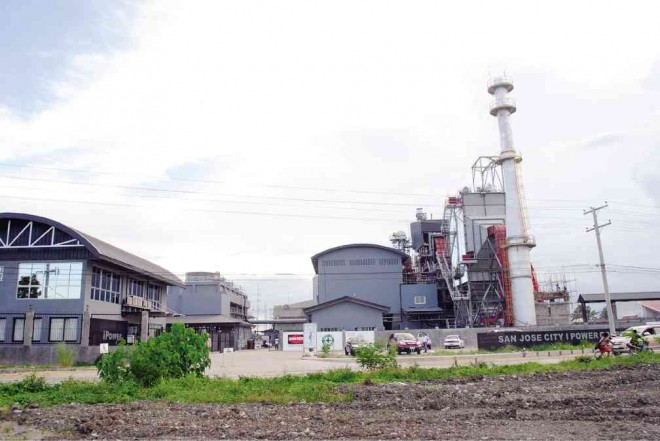
THE BUILDING that houses a biodegradable waste-to-energy facility rises in San Jose City, offering hope for the future of green energy not only in Nueva Ecija, but the rest of the country. ANSELMO ROQUE/INQUIRER CENTRAL LUZON
SAN JOSE CITY, Philippines—The country’s first commercial biodegradable waste-to-energy commercial power plant would be ready for operation by August to help boost electric supply in Luzon, according to energy officials and proponents of the project.
The plant was put up by rice millers here through San Jose City I Power Corp. (SJC I-Power), a joint venture they have with Union Energy Corp. owned by businessman Lucio Co.
“Our plant will be 100 percent fired by rice husk,” said Edgardo Alfonso, chief executive officer of SJI I-Power.
He said the plant would have a gross generating capacity of 12 megawatts and feed 10.5 megawatts of it to the Luzon grid.
The generating plant sits on a six-hectare lot in Barangay (village) Tulat here. The city is host to 26 rice millers, who are reputed to have cornered palay harvests not only in Nueva Ecija but also in Isabela, Pangasinan, Ilocos and nearby provinces.
These millers supply rice to Metro Manila and Southern Luzon.
They had problems with disposing of rice husk in the past. They used to transport the husks to cement manufacturing plants in Batangas province which use these for fuel until the millers realized they could use the waste materials to generate electricity.
“Our decision [to venture into the power business] was an offshoot of the study on enhancing the energy self-sufficiency of rice mills,” said Alfonso, who is also head of the San Jose City Rice Millers Association.
He said the city government also advocated the technology.
Power plants fueled by rice husks also operate in Isabela and in Mindanao but these are not operated on a commercial scale, meaning they produce electricity in small amounts.
Former Energy Secretary Jose Almendras launched the project in groundbreaking rites here in October last year. He called the project as a model for renewable energy.
Ernest Lura, acting plant manager, said the rice husk-fueled plant was put up by experts from various countries contracted by the corporation.
“We will be using 12 to 14 tons of rice husks per hour to operate the plant,” Lura said. The husks can be bought from the millers.
“So we will need about 300 tons of rice husks on a 24-hour basis,” he said.
He said the supply of rice husks here is more than enough for the operation. “We will have a problem with supply only when rice mills no longer have palay to mill,” he said.
“In three to four months, we hope we will be fully operational,” he added.